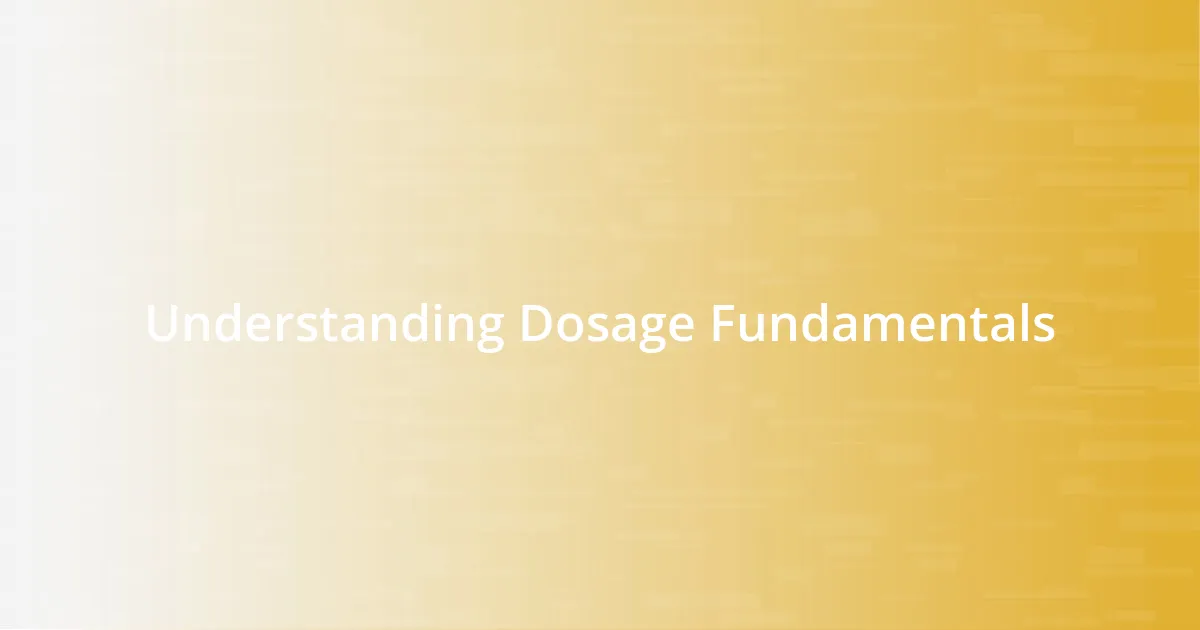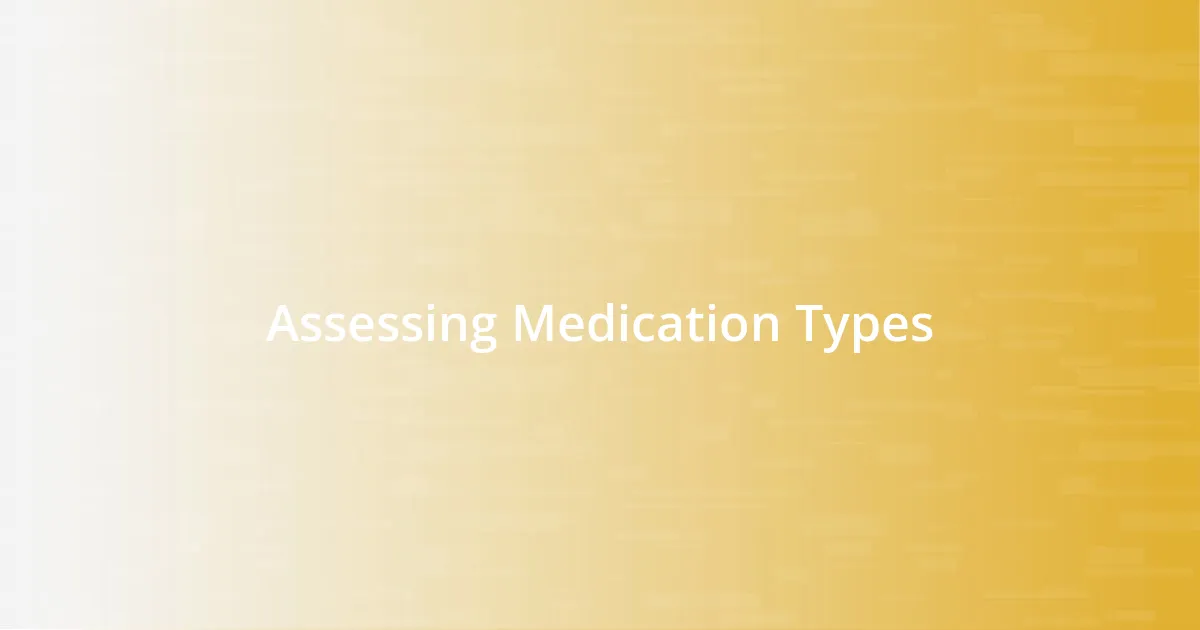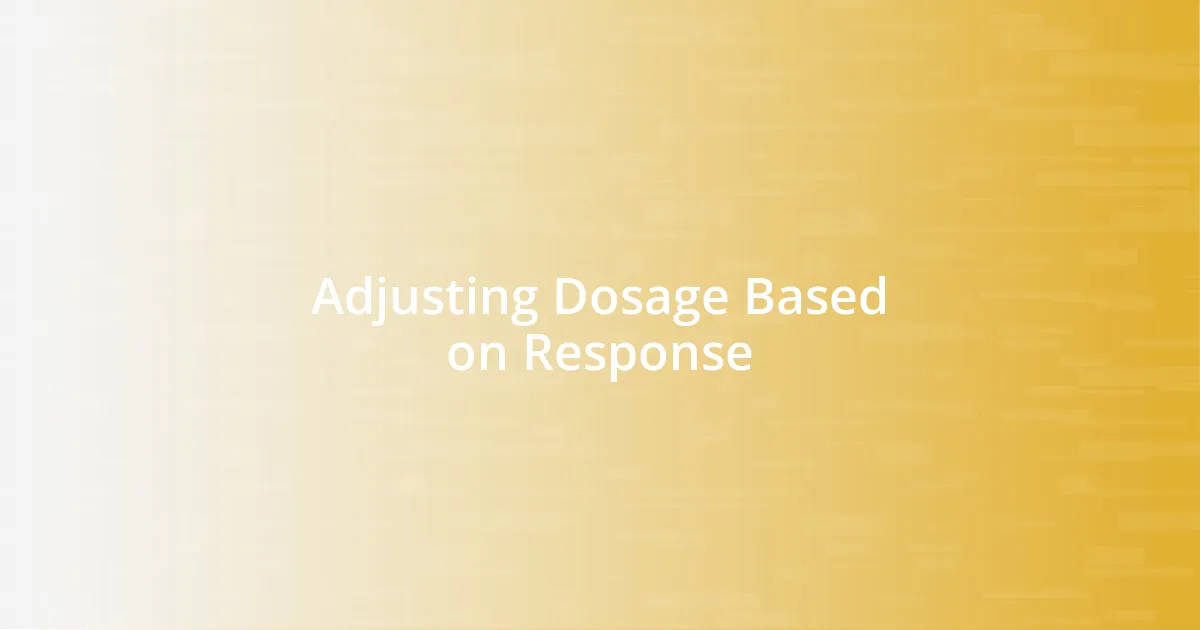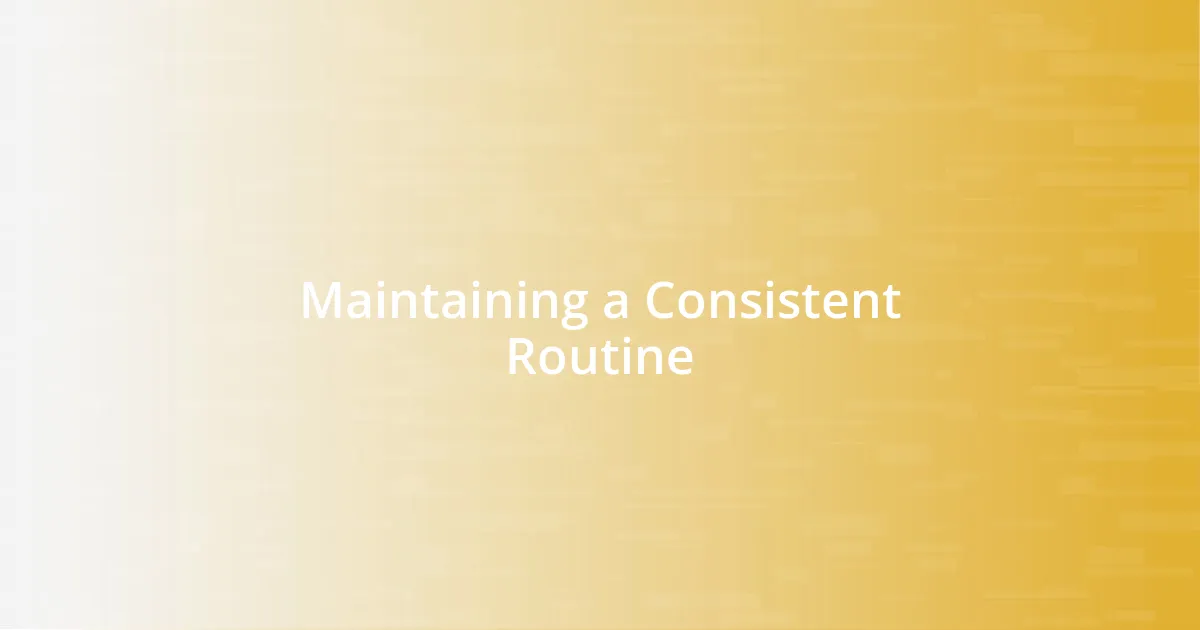Key takeaways:
- Finding the right dosage requires careful balance and consideration of individual response, timing, and consistency.
- Tracking symptoms and side effects through journaling enhances understanding and confidence in adjusting medication effectively.
- Engaging in open dialogue with healthcare professionals is crucial for tailoring treatment and exploring alternative options.
- Maintaining a consistent routine by integrating medication into daily habits can significantly improve management and overall well-being.

Understanding Dosage Fundamentals
Finding the right dosage is like walking a tightrope. Too little may leave you feeling unwell, while too much can lead to unwanted side effects. I still remember the anxious moment when I realized that adjusting my medication too quickly brought about more headaches than relief — it was a tough lesson in dosage awareness.
When we think about dosage fundamentals, it’s essential to consider both the active ingredient and the individual response. Everyone’s body chemistry is unique, which means what works wonders for one person might not have the same effect on another. Have you ever felt frustrated after switching medications only to find out it didn’t agree with you? I certainly have, and it teaches you to appreciate the careful balance that goes into determining the right amount for your own needs.
Equally, understanding dosage also involves recognizing the importance of timing and consistency. I’ve learned that taking my medication at the same time each day helps keep my levels steady, which in turn makes the treatment more effective. I’m curious—how do you manage your medication schedule? Finding that rhythm not only sets your day but also fosters greater trust in your treatment plan.

Identifying Your Personal Needs
Identifying what you truly need from your dosage can often feel elusive. Personally, I found that logging my symptoms and how I felt over time was incredibly eye-opening. This approach not only clarified my highs and lows but also led me to adjust my medication with greater confidence.
Often, our needs can vary depending on countless factors such as stress levels, diet, and even sleep patterns. One time, I noticed that a particularly stressful week made me feel like my dosage wasn’t quite right. Reflecting on those moments helped me realize that sometimes, external influences play a significant role in how effective my treatment is and what adjustments might be necessary.
Discovering your personal needs isn’t just about tracking numbers; it’s about tuning in to your body’s messages. There was a point when I finally listened to my intuition and spoke to my healthcare provider about feeling off. It led to a breakthrough conversation that allowed me to reshape my dosage comfortably, thereby enhancing my overall health.
| Factor | Impact on Personal Needs |
|---|---|
| Stress Levels | Can increase the need for higher dosage or adjustments. |
| Sleep Patterns | Poor sleep can impact medication effectiveness and symptom management. |
| Diet | Certain foods may enhance or hinder the absorption of medication. |

Assessing Medication Types
Assessing the types of medication can be a crucial step in balancing dosage effectively. I remember when I had to navigate the assortment of options for my condition, and it felt overwhelming. Learning how each medication interacts with my body was like unraveling a puzzle, where each piece had the potential to fit or misalign with my health needs.
Here are the key types of medications and how they may differ in effects:
- Stimulants: Often prescribed for attention-related issues, I found that just a small adjustment could lead to heightened focus but also jitteriness if too high.
- Antidepressants: These sometimes took weeks before I could feel their full effects, teaching me patience alongside perseverance.
- Anti-inflammatory drugs: When I first started them, the relief from pain was quick, but I learned that overuse can lead to unwanted digestive issues.
- Hormonal medications: It took me some time to recognize that hormonal changes could influence how effective these medications were for me.
Every experience with a medication type has been a lesson, illustrating that understanding their nuances can significantly impact my overall care. I’ve learned to ask detailed questions and trust my instincts when evaluating how each type works within my personal health landscape.

Adjusting Dosage Based on Response
Adjusting the dosage based on how I respond to medication has been a journey of constant reflection. I vividly remember a time when I felt unusually fatigued, leading me to wonder if my dosage needed tweaking. It’s fascinating how our bodies send signals; sometimes, all it takes is a little patience to recognize when those signals call for change.
One particular instance sticks with me: after increasing my dosage, I experienced unexpected anxiety. It made me realize that my body was talking to me, voicing discomfort that couldn’t be ignored. So, I reached out to my healthcare provider, and it was enlightening to understand how delicate the balance truly is. A small adjustment led to remarkably improved stability, emphasizing the importance of staying tuned in to my body’s reactions.
When considering dosage adjustments, I often ask myself, “How am I genuinely feeling?” It’s a simple yet powerful question. Over time, tracking my feelings has provided crucial insights, like the realization that a slight dose increase during particularly stressful times can make a world of difference. Learning to adapt based on these reflections has been transformative, fostering a sense of empowerment over my health journey.

Tracking Side Effects Effectively
Tracking side effects has been essential in my health journey, as it provides a clear picture of how each medication affects me. One method I found effective was maintaining a daily journal where I noted symptoms, changes in mood, and physical reactions right after taking my medication. Reflecting on this data allowed me to identify patterns that would have otherwise gone unnoticed. Have you ever experienced a fluctuation in how you feel, without fully understanding why? It can be a bit of a mystery, but journaling has shed light on it for me.
I recall a particularly challenging week when my new medication caused vivid dreams and restlessness. I initially dismissed it as stress-related, but looking back through my notes, I noticed these effects coincided with my medication. That one insight led me to discuss this with my doctor, prompting an adjustment that ultimately gave me a restful night’s sleep again. It’s fascinating how tracking these details can bridge the gap between me and my healthcare provider, creating a more collaborative approach to my treatment.
Technology can play a significant role in tracking side effects, too. I started using an app designed for medication management, which made documenting my experiences easy and accessible. With reminders and simple input, I could log side effects in real time. Have you tried any tech tools in your regimen? I found that this not only kept information organized but also empowered me to advocate for myself during appointments. Combining my own observations with digital tracking has been a game changer in understanding and managing my health effectively.

Consulting Healthcare Professionals
Engaging with healthcare professionals has been a vital part of my dosage journey. There was a moment when I hesitated to bring up my concerns during an appointment. I remember sitting in the waiting room, feeling anxious about whether it was worth it to speak up. But once I opened up about my experiences, it transformed the conversation. My doctor shared insights I never anticipated, highlighting that my feelings were not only valid but also pivotal in tailoring my treatment. Have you ever held back on sharing your experiences? I encourage you to speak up; there’s so much to gain from that dialogue.
After one particularly tough month, I decided to schedule a follow-up appointment to reassess my medication regimen. I went in armed with my journal notes and some persistent questions swirling in my mind. The relief I felt when my doctor listened thoughtfully was remarkable. It was as if those words collected on the page were finally breathing life and clarity into my health journey. Together, we navigated through my patterns and side effects, leading to a more balanced dosage. Isn’t it incredible how a collaborative approach can foster breakthroughs?
Each consultation is also an opportunity to reflect on my medication’s impact on my life. I once asked my healthcare provider if there were alternative treatments for my symptoms. Surprisingly, this line of questioning opened a door to new possibilities I hadn’t considered before. Engaging in honest conversations not only informs my decisions but also empowers me to take a proactive role in my treatment. What questions are you holding back? Trust me, articulating those can be the first step towards finding balance in your own dosage.

Maintaining a Consistent Routine
Maintaining a consistent routine has been a game changer for me in managing my dosage effectively. I remember the early days when I felt all over the place, sometimes forgetting to take my medication. Once I established a specific time each day for my doses, life started to feel more manageable. Have you ever noticed how a small shift in your daily schedule can create a ripple effect in your overall well-being? For me, it made a profound difference.
I’ve also found that pairing my medication with daily activities helps build that routine. For instance, I take my pills right after making my morning coffee. This simple act not only reminds me to take my doses but also provides a moment of mindfulness before diving into the day. It’s fascinating how intertwining tasks can lead to greater stability. Have you tried linking your medication routine with another daily habit? It can transform the mundane into something positive and grounding.
Sometimes, life throws curveballs, and maintaining that routine gets challenging. I recall a week when I traveled for work and felt anxious about staying on track. To keep my consistency, I set reminders on my phone and packed my medications in easy-to-reach bags. This preparation eased my worries, and I managed to keep my routine intact, even on the go. It’s empowering to know that with a little planning, I can adapt without losing sight of my health goals. How do you handle those unpredictable moments? I’ve learned that flexibility and preparation are key to sustaining that much-needed consistency.















